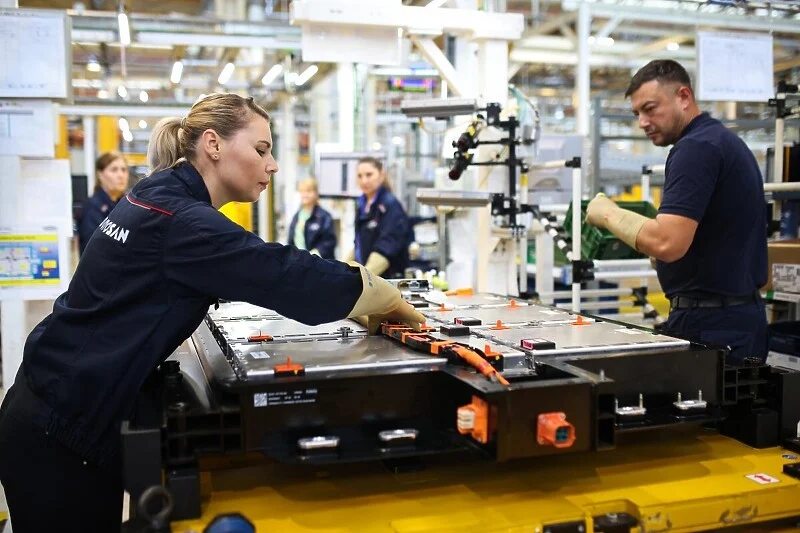Electromobility threatens in Germany ? What will it mean for employment in the German auto industry if cars with SUS engines are no longer allowed to be sold from 2035?
The Automobile Industry Association (VDA) says the result is devastating. As many as 46,000 jobs have already disappeared since 2019. Most of them at suppliers. And that’s just the beginning.
“The transition to electromobility will lead to job losses. We stand behind the transformation, but we must be aware of the consequences,” says VDA President Hildegard Müller.
In its study “Employment Outlook in the Automotive Industry”, the research institute Prognos considered these consequences for 700 professions. Result: Jobs are eliminated primarily in traditional professions with many employees, for example in metal processing.
Professions that will be more in demand in the future, such as plastic processing or information technology, can only partially compensate for job losses. For example, the 300,000 jobs that will be lost in the German auto industry by 2035 are compensated by only 110,000 new jobs in growing areas of the industry.

This makes it clear that the transformation will cost 190,000 jobs net. It is one of five jobs in the automotive industry. In any case, only a few employees, about one in four, will retire in the next few years. Most of those affected will therefore need a new job.
“Demography will not solve the problem,” says VDA Chief Economist Manuel Kallweit.
The production of internal combustion engines and gearboxes, which will no longer be available in Europe after 2035, creates a lot of pressure. The EU has effectively banned the sale of new cars with SUS engines from 2035, and it is uncertain how many jobs will be created in new areas such as battery manufacturing.
“It would be important not to reduce battery research in order for Germany to remain competitive as a battery location,” says VDA President Müller. But the federal government plans to stop funding battery research.
It is clear that employment in the automotive industry peaked in 2019. At that time, 960,000 people were employed. Things have been going downhill since then. Currently, 911,000 people work in the industry.
There are also jobs in the automotive industry with growing employment, such as automotive technology, R&D and software development. But they can’t make up for the job loss. In addition, the employees who are affected do not necessarily have the appropriate qualifications. In short, there is already a shortage of skilled workers in some areas, for example in IT professions.

In addition to the trend of e-mobility, the loss of jobs in the industry is exacerbated by locational conditions. The location is no longer competitive. For example, due to high energy prices. That is why new jobs could be created in plastic processing, but it is energy-intensive and therefore almost no investment is made in Germany. The same applies to the production of battery cells.
“Besides the transformation to e-mobility, the lack of demand for electric cars is another challenge. We expect more support from politicians, not only in Germany,” says Müller.
“There are fewer charging stations in Greece than in Hamburg. If the transformation fails in Europe, the negative effect on employment will be even greater,” Müller points out.
What Müller wants from politicians are competitive energy prices, less overburdened bureaucracy, fast planning and approval procedures, a competitive system of taxes and levies, more free trade agreements. The list is long, the tasks are urgent.







